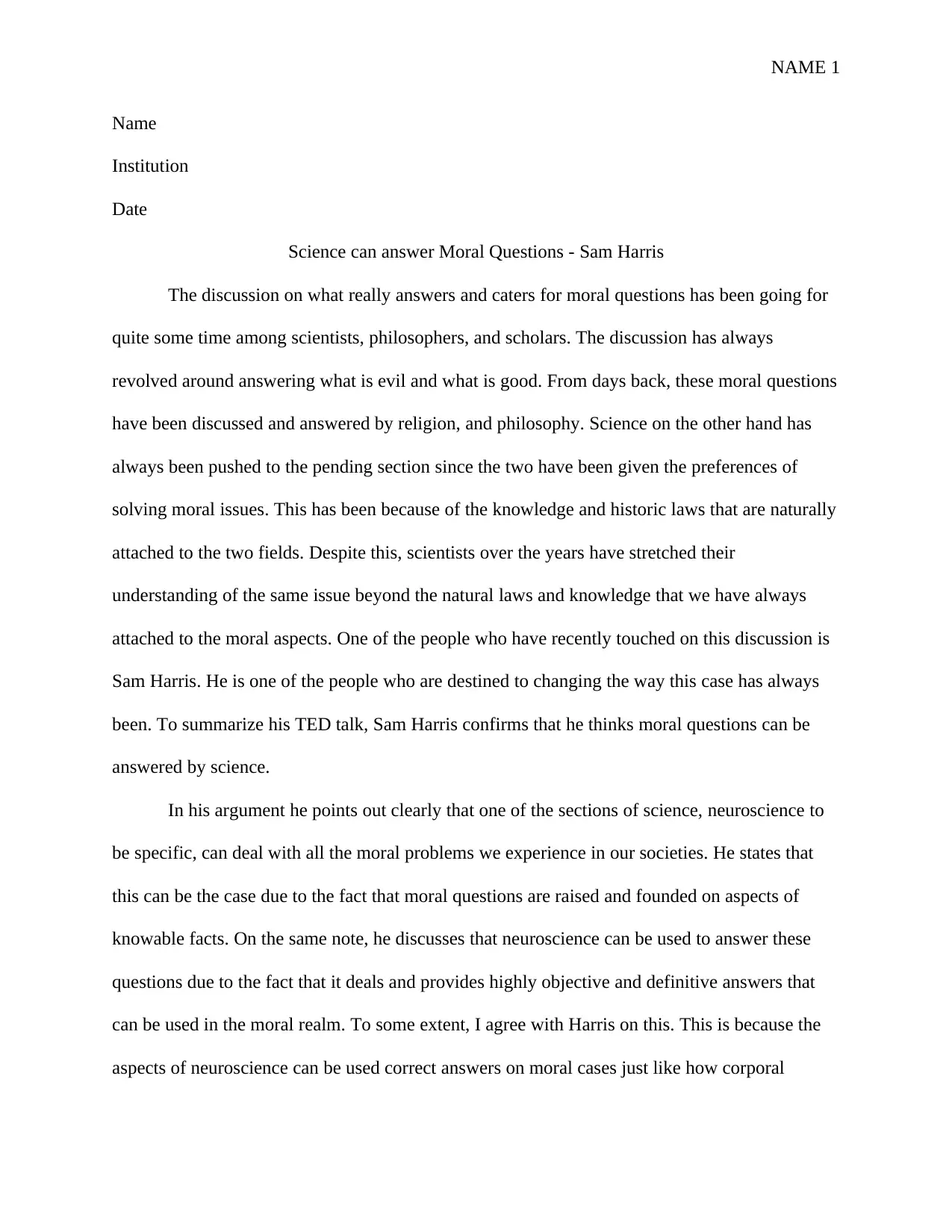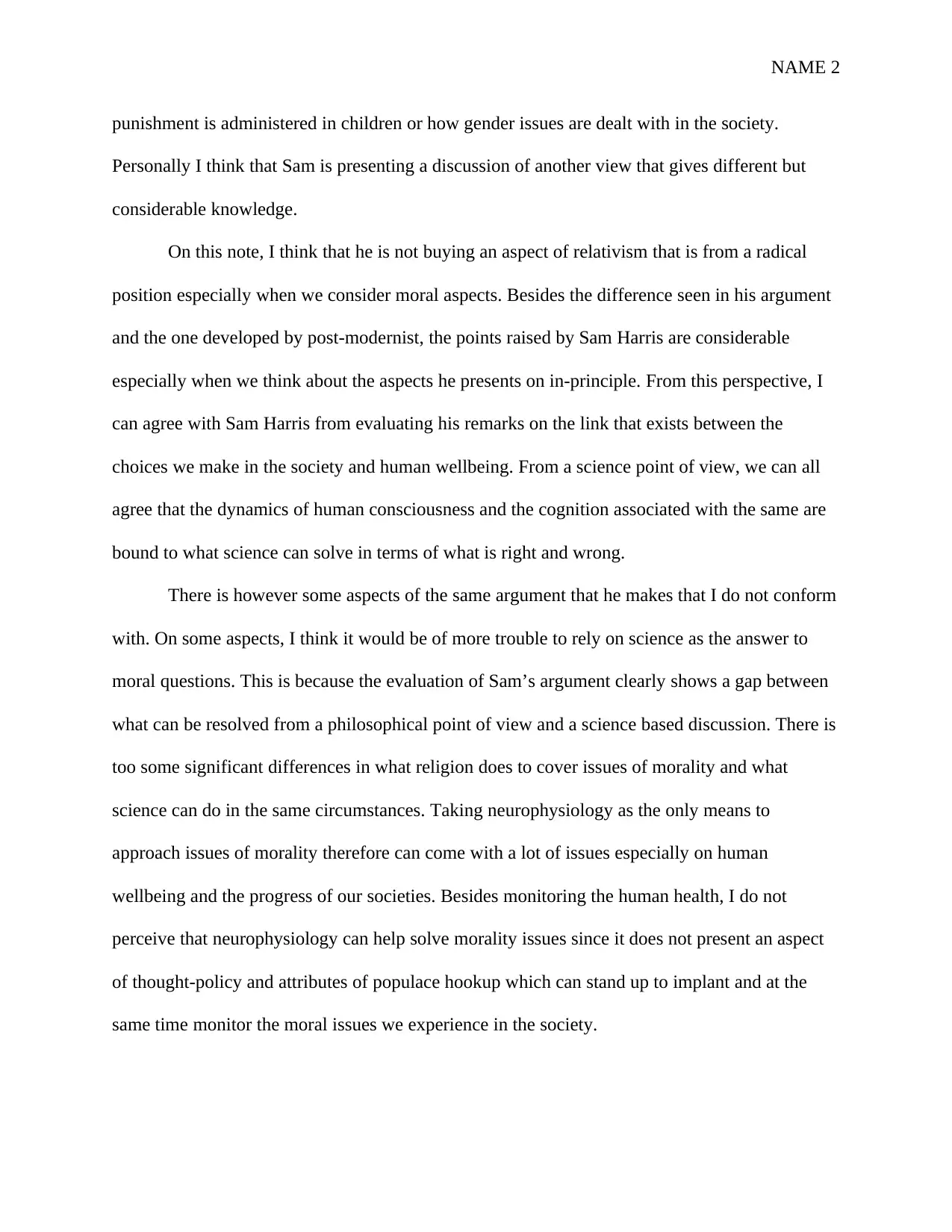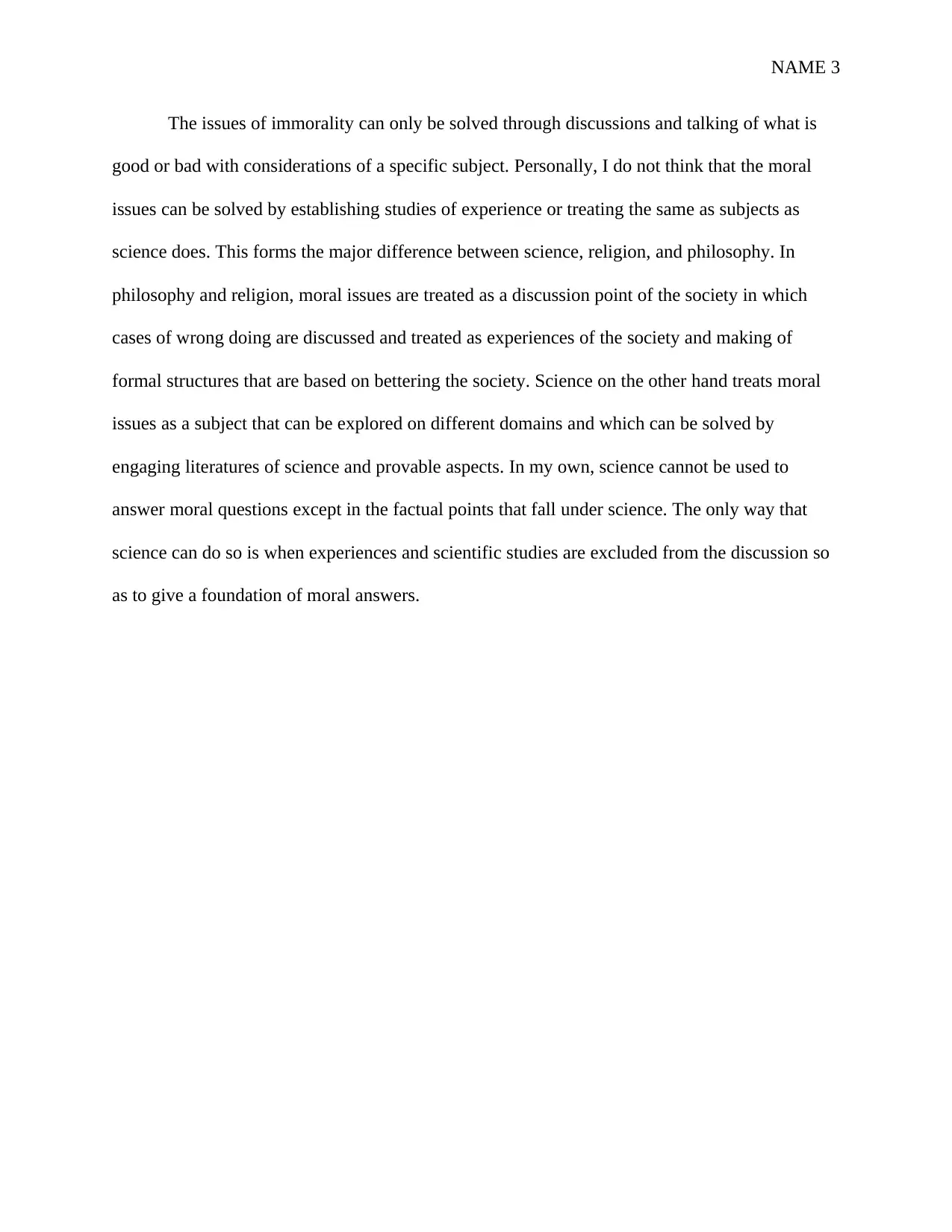Examining Sam Harris's View: Can Science Answer Moral Questions?
VerifiedAdded on 2022/10/17
|4
|891
|84
Essay
AI Summary
This essay critically examines the argument presented by Sam Harris, who posits that science, specifically neuroscience, can provide answers to moral questions. The essay explores the potential of using scientific methods to address ethical dilemmas, such as corporal punishment and gender issues, while acknowledging the limitations of relying solely on science for moral guidance. The author agrees with some aspects of Harris's view, particularly concerning the link between human well-being and societal choices, but also highlights the gap between philosophical and scientific approaches to morality, as well as the differences between religious and scientific perspectives. The essay argues that while science can contribute factual insights, moral issues often require discussions and considerations beyond scientific studies and empirical evidence. Therefore, the author concludes that science can only address moral questions within its factual boundaries, excluding experiences and scientific studies to provide a foundation for moral answers.
1 out of 4











![[object Object]](/_next/static/media/star-bottom.7253800d.svg)